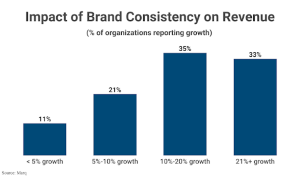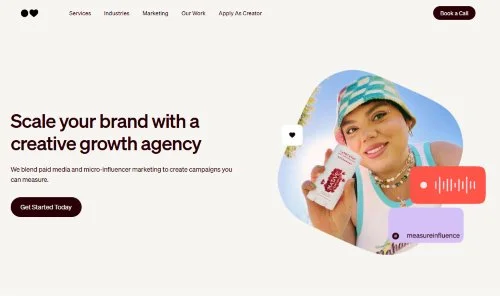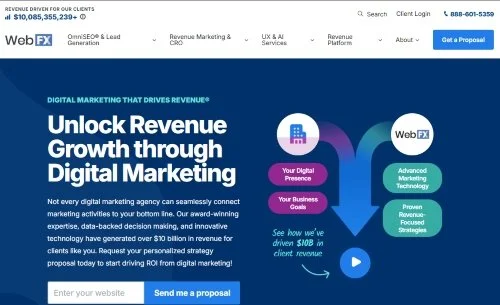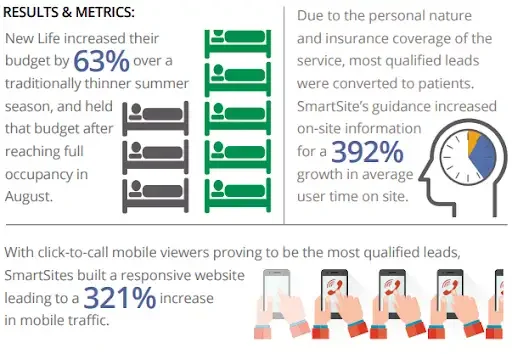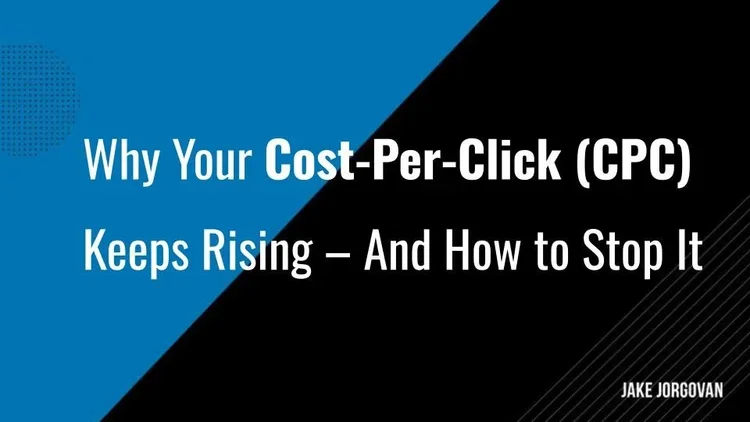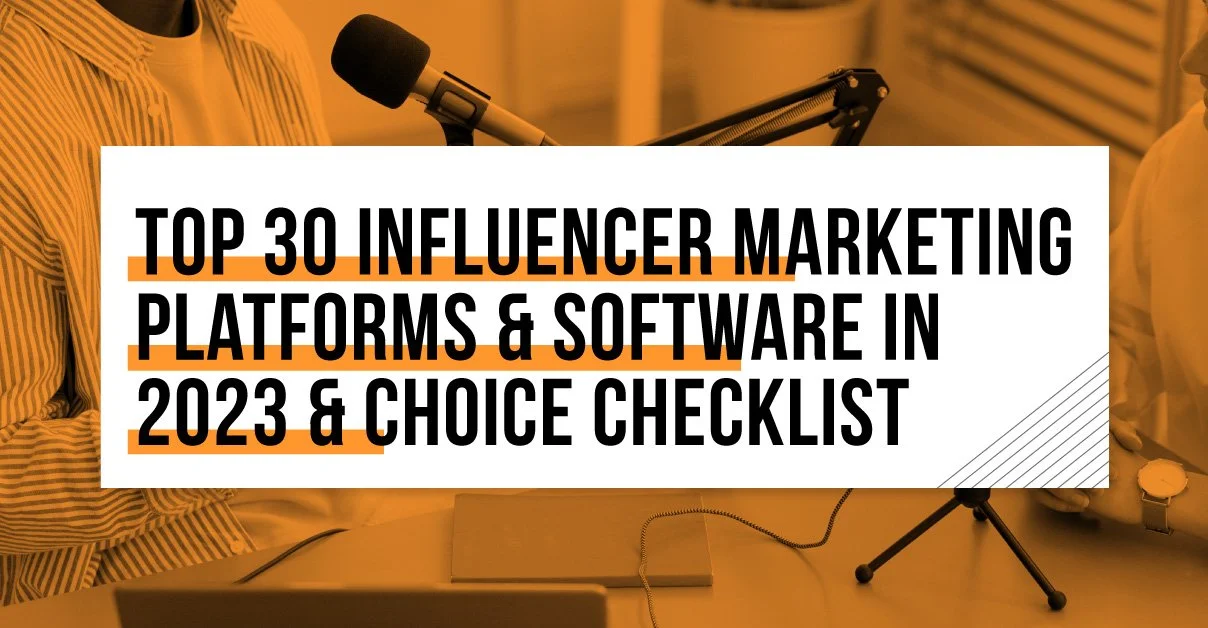What Is a Full-Service Digital Marketing Agency? Explained With Examples
Let’s be honest: digital marketing can be overwhelming. Between managing search engine optimization (SEO), running paid ads, staying relevant in social media marketing, and optimizing every click, things can get messy fast.
That’s where full-service digital marketing agencies come into play. These agencies handle everything, including campaign strategy, creative production, media buying, content, email flows, CRO, and more.
And this model is exploding. The global full-service digital marketing agency market hit $343.78 billion in 2024 and is projected to reach $1,088.4 billion by 2037, growing at nearly 9.2% per year. In 2025 alone, it’s expected to hit $369.36 billion.
In this guide, we’ll break down exactly what a full-service digital agency does, the pros and cons, who should hire one (and who shouldn’t), and how to choose the right partner.
TL;DR
In a rush? Here’s a short version:
A full-service digital marketing agency offers all-in-one support across channels like SEO, paid ads, content, and web development.
Ideal for businesses that want fewer vendors, better strategy alignment, and more efficient execution.
These agencies combine creative, media, data, and tech under one roof.
You’ll get stronger results, smoother workflows, and clearer accountability.
Best suited for startups, mid-market brands, and enterprise teams looking to scale efficiently.
What Is a Full-Service Digital Marketing Agency?
“Full-service” sounds clear enough, but in reality, every agency defines it differently.
A full-service digital marketing agency offers end-to-end support across the entire marketing funnel.
That means they don’t just run ads or write content. They also handle marketing strategy, execution, optimization, and reporting, all under one roof.
To simplify your marketing efforts, full-service marketing agencies align every channel and help your business grow without the chaos of managing multiple vendors.
In an article for Forbes, research and advisory firm Forrester predicted that, by 2025, one-third of digital media specialists will evolve into full-funnel agencies. As they stated:
“Barely half of US CMOs plan to integrate performance and brand media assignments, and over a third plan to integrate creative and media assignments (...). CMOs and agency executives will reconcile full-funnel, full-service capabilities with deep expertise in various disciplines and channels.”
Now, what “full-service” includes can differ slightly depending on the agency.
Some lean heavily into paid media and analytics. Others bundle in creative services, branding, or even influencer marketing.
Truly effective agencies ensure all their services work together in a unified and strategic way. That’s where full-service agencies shine.
In fact, marketers using three or more channels in a campaign see a 494% higher order rate than those sticking to one.
That kind of coordination is challenging to achieve without a central team overseeing the entire picture.
What Services Do Full-Service Digital Marketing Agencies Provide?
Here’s a breakdown of common services that full-service marketing agencies offer:
Search engine marketing and content marketing: Focuses on ranking your site in search engines and building authority with valuable content creation. It drives organic traffic and builds long-term visibility without relying on paid ads. They also conduct technical SEO and improve website speed and backlink quality, which ultimately increase website traffic.
Digital paid media (PPC on search and social media): Runs targeted search and social ads campaigns to reach high-intent users on platforms like Google, Meta, and TikTok. Ideal for generating leads quickly, building brand awareness, and driving sales.
Web design and development: Builds or optimizes your website for both user experience and conversions. That means better design, faster load times, and clear paths to purchase or sign up.
Social media management: Handles planning, posting, and community engagement across social media platforms like Facebook, Instagram, LinkedIn, or X. Keeps your brand active, on-message, and visible.
Email marketing and automation: Sets up flows to convert leads and retain customers through personalized messages, promotions, and follow-ups that run on autopilot.
Analytics and conversion optimization: Tracks what’s working and improves what’s not. Includes A/B testing, heatmaps, funnel analysis, and performance reports to optimize every step.
Strategy and consulting: Brings expert input to guide your marketing decisions. Helps you prioritize efforts, set goals, and ensure all your campaigns support the same growth strategy.
Bringing all the above services together in one place helps create a more efficient, cohesive, and results-driven marketing approach.
Full-Service Marketing Agencies vs. Specialized Agencies
Should you hire a full-service agency or a group of niche experts? It depends on your goals, team size, and how much coordination you’re ready to manage.
When Does a Full-service Agency Make Sense?
Full-service agencies provide a single point of contact and a team that works together across your entire marketing funnel.
That means your ad strategy, content, SEO, email flows, and CRO aren’t siloed but built to support each other from day one.
What are the results?
Better alignment between channels.
Faster execution and decision-making.
Less time wasted in meetings or back-and-forth with multiple vendors.
They’re a smart choice if:
You don’t have a full in-house marketing team.
You’re scaling fast and need hands-on execution.
You want one partner to own strategy and results across the board.
Full-service agencies are ideal for brands looking for a long-term, strategic partner who can handle both the big-picture vision and the daily execution.
When is a Specialized Agency the Better Fit?
Specialized agencies focus on one area, like SEO, paid advertising, or influencer marketing.
For example, a paid media agency specializes in running and managing PPC campaigns. They focus on doing one thing really well instead of trying to cover it all. Similarly, a social media agencies solely focus on social media channels.
If you already have a strong team or other vendors handling the rest of your marketing stack, a niche agency can help you get more out of a specific channel than a generalist could.
This option works best when:
You already have a clear strategy and just need executional support.
You want to push performance further in a specific area.
You have the internal bandwidth to manage multiple partners.
The trade-off is that you’ll need to coordinate across teams and keep everyone aligned, something a full-service agency usually handles for you.
And this is important to get in count. The U.S. digital ad market reached $258.6 billion in 2024, with spend growing 14.9% YoY. That kind of growth also means complexity.
When your channels aren’t in sync, you risk wasting ad dollars, something a full-service team helps avoid.
Who Should Hire a Full-Service Marketing Agency?
Not every business needs a full-service agency. But for the right teams, it can be a game-changer in saving time, boosting performance, and filling key gaps without the complexity of managing multiple vendors.
Here’s who benefits most from this model:
Startups and SMBs Without In-House Teams
Smaller companies might not have the resources or time to build a full marketing team from scratch.
A full-service agency gives them instant access to experts in paid ads, content, design, and data-driven strategy, without the overhead. It’s a fast way to go from zero to execution.
Mid-Market Companies Scaling Up
When you’re growing fast, you need a strategic partner who can execute across multiple channels while keeping everything aligned.
Full-service agencies help mid-sized brands stay focused on business goals while handling day-to-day marketing operations behind the scenes.
Enterprise Teams Looking to Consolidate
Larger companies often have in-house teams but still partner with agencies to fill capability gaps, streamline operations, or consolidate a long list of external vendors. As their marketing needs are complex and their budgets are substantial, they stand to benefit from working with a full-service agency instead of multiple specialized ones.
Benefits of Hiring a Full-Service Digital Marketing Agency
So why do so many brands go the full-service route? Beyond convenience, the biggest advantage is integration (strategy and execution working together), powered by data and driven by performance goals.
Here’s what that looks like in practice:
Strategy + Execution = Less Stress
With a full-service agency, you’re not managing five different partners or chasing updates from multiple people. Instead, you get a unified team that builds the plan and makes it happen. It saves hours of coordination and avoids the disconnect between strategy and delivery.
More and more businesses are turning to a full-service digital agency. That's obvious from the fact that digital agencies that added more services grew by 9.7%, showing just how powerful a well-rounded approach can be.
Better Cross-Channel Consistency
When the same team handles your SEO, ads, content, and email, your messaging actually stays consistent. Strong branding has a real impact, boosting performance across every stage of the customer journey. Also, consistent branding across different channels can help increase revenue (by as much as 20%).
Easier Communication and Management
Fewer points of contact mean fewer meetings, less back-and-forth, and better visibility. You know who’s doing what, and you don’t waste time chasing answers. In contrast, when you’re working with different agencies, you have various points of contact, which can sometimes lead to delays and confusion if communication isn’t streamlined.
Cost-Effective (In the Long Run)
Yes, you might pay more upfront. But over time, it can be more efficient than juggling multiple niche vendors. That’s because you reduce overhead, avoid campaign misalignment, and improve ROI.
Let’s talk numbers:
Email marketing: $36 return for every $1 spent
Influencer marketing: $5.78 for every $1
Google Ads: $2 for every $1
A full-service marketing agency helps consolidate all these channels with relevant and strong strategies and helps compound the ROI, which essentially will pay for the money you spend on them in the long run.
3 Real Examples of Full-Service Agencies (And What They Do Well)
These full-service agencies show what it really means to deliver results across multiple areas of marketing:
1. inBeat Agency
inBeat Agency started as a micro-influencer and UGC agency but has grown into a full-service performance agency for brands in a variety of industries.
What sets them apart is their ability to combine creator-driven content with paid media, CRO, and analytics, resulting in ad campaigns that convert better and scale faster.
One standout example is their work with Soylent, a brand facing heavy competition and ad fatigue during the launch of a new product line. inBeat’s team activated 10 niche influencers, who produced 50+ persuasive content assets tailored to specific target audience segments.
The campaign received over 5 million impressions, expanded reach into new customer segments, and authentic engagement built through creator trust.
2. WebFX
WebFX is a data-heavy, ROI-driven full-service agency with a massive client portfolio (over 1,000 businesses served).
Their strength is scale. They offer everything from SEO and paid search to custom web development and CRM integration. They’re known for proprietary tech like RevenueCloudFX, which centralizes data, tracks leads, and helps clients see the real ROI of their campaigns.
That kind of integration is a big reason they’ve driven over $3 billion in client revenue.
A strong example of this is their work with Kampgrounds of America (KOA).
Despite having over 500 campgrounds across North America, KOA’s online presence wasn’t matching its footprint.
WebFX built out a tailored SEO strategy, optimizing content, fixing technical issues, and improving internal linking. The results speak for themselves:
3. SmartSites
SmartSites blends creativity and performance. It offers services across SEO, PPC, web design, and CRO.
They’re a Google Premier Partner and Meta Business Partner, which signals they not only know how to drive traffic, but also how to make that traffic convert.
They’re known for building fast, mobile-optimized websites and landing pages that look good and are built to perform, and they also create high-converting paid campaigns.
For example, SmartSites changed the website design for mobile users, launched a targeted Google Ads campaign, and optimized everything from ad timing to device-specific content for New Life Addiction Treatment Center.
Their efforts resulted in a 321% increase in mobile traffic, 392% longer session duration, and full capacity, even during the company’s slow season.
P.S.: Looking for more examples? Check out this curated list of full-service advertising agencies to find the right fit for your brand.
How to Choose the Right Full-Service Digital Marketing Agency
Choosing the right agency can significantly impact your marketing performance. A good partner acts like an extension of your team, brings clarity to your strategy, and helps you grow with less friction.
But the wrong one? It’ll drain your budget, create misalignment, and leave you with more questions than results.
Here’s how to make the right call:
Know Your Goals and Budget
Start with your outcomes, not just services.
Are you trying to lower your CAC? Expand into a new market? Improve your landing page conversions? When you know your goals, it’s easier to identify which agencies can truly help.
Also, be upfront about your budget. A $ 10,000/month agency may not be right for a brand with a total ad spend of $5,000.
But the best agencies won’t just say “yes” or “no”, they’ll help you prioritize what moves the needle with the resources you have.
Ask the Right Questions
The best agencies are clear, structured, and transparent. Don’t be hesitant to ask questions. You should be asking:
Can you show me relevant case studies and campaign results?
What platforms and verticals do you specialize in?
How does your team structure work? Who does what? And how often will we talk?
How do you report on performance, and how often?
You’re looking for answers that show they understand your business, not just marketing in general.
Red Flags to Watch Out For
A few signs you’re talking to the wrong partner:
No mention of custom strategy, just pre-built packages.
Overpromising (“We’ll 5x your ROAS in 30 days”).
Lack of visibility into your accounts or data.
Vague timelines with no clarity on what happens when.
A serious agency won’t dodge your questions. Also, they’ll offer frameworks, realistic benchmarks, and open access to performance data.
Consider a Trial or Pilot Project
Long-term contracts are fine, but not on day one. A good agency will suggest (or accept) a trial project to build trust and show what they can do. This could be a creative refresh, campaign audit, or a short test campaign.
You’ll get to evaluate their process, responsiveness, and results before committing to a longer relationship.
If they push hard for a full retainer without even proving fit, that’s a red flag in itself.
Mistakes to Avoid When Hiring a Full-Service Digital Marketing Agency
Even with the right agency, things can go sideways if expectations aren’t clear or the relationship isn’t managed well.
These are some of the most common missteps businesses make, and how to avoid them:
Not defining success early on: If you don’t agree on what success looks like, it’s impossible to know if your investment is working. Set KPIs from day one.
Micromanaging or being too hands-off: The sweet spot is collaboration. You should stay involved in strategy and approvals for maximum transparency, but let the agency do what you hired them for.
Skipping alignment on communication and workflows: Clarify who’s approving creatives, how feedback is delivered, and how often you’ll meet. Otherwise, things get messy fast.
Choosing based on price alone: A cheaper agency might cost more in the long run if it lacks experience, systems, or results.
Forgetting that this is a long-term relationship: Values, culture fit, and working style matter. You’ll be talking to this team weekly, so make sure it’s a good match.
The Right Agency Can Be a Growth Engine
A full-service digital marketing agency can be a powerful growth driver when chosen and managed well.
When strategy, execution, and optimization work together in one place, your marketing runs smoothly and delivers better results. For brands that want to grow and simplify, this model makes sense.
The best agencies won’t just “run your ads” or “do your SEO.” They’ll act like partners, helping you evolve, test, iterate, and win in a crowded digital space.
Explore the Best Full-Service Marketing Agencies to supercharge your marketing game and get the results that take your brand forward.
FAQs
What Does a Full-service Digital Marketing Agency Do?
A full-service marketing agency handles your marketing end-to-end. That includes strategy, campaign execution, online advertising, creative production, video production, content, email, SEO, web design and development, CRO, analytics, you name it. The goal is to centralize all your marketing under one roof so everything works together.
What’s the Difference between Full-service and Niche Agencies?
A full-service agency offers a wide range of services across multiple channels. Meanwhile, a niche agency goes deep into one area, like SEO or social media campaigns. Full-service is best for integration and alignment, while niche can be helpful for highly specific needs.
How Much Does a Full-service Agency Cost?
Pricing for a full-service marketing agency varies, but monthly retainers often start at around $5,000–$10,000 for small to mid-sized businesses, and can scale up to $50K+ for enterprise. Cost depends on scope, channels, and how much execution you’re outsourcing.
Does my Business Need a Full-service Agency?
It depends. If you’re juggling multiple vendors, lacking in-house resources, or need help aligning paid media, organic search, and creative strategy, a full-service partner can bring clarity and efficiency. But if you already have strong internal execution, you might just need a specialist.
Can I Hire a Full-service Agency with an Internal Marketing Team?
Absolutely. Many brands do. In fact, full-service agencies often work alongside internal teams to fill gaps in areas like campaign execution, content strategy, or technical implementation.
What Results Can I Expect from a Full-service Agency?
You should expect clear KPIs, consistent reporting, and measurable improvements across key channels. That could mean lower CPCs, better conversion rates, higher ROAS, stronger retention, or improved content writing and messaging, depending on your goals. The right agency will show you activity and impact.


